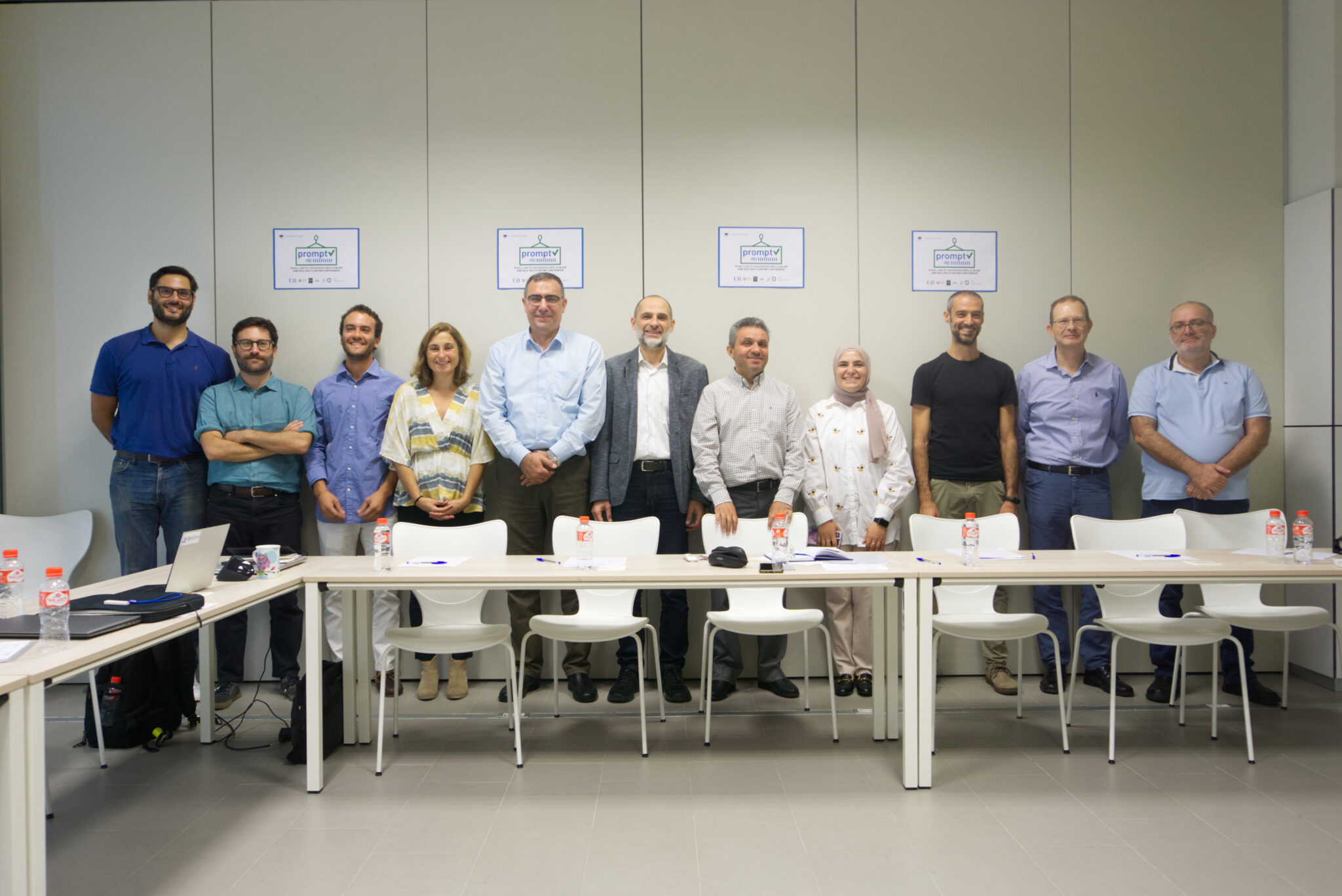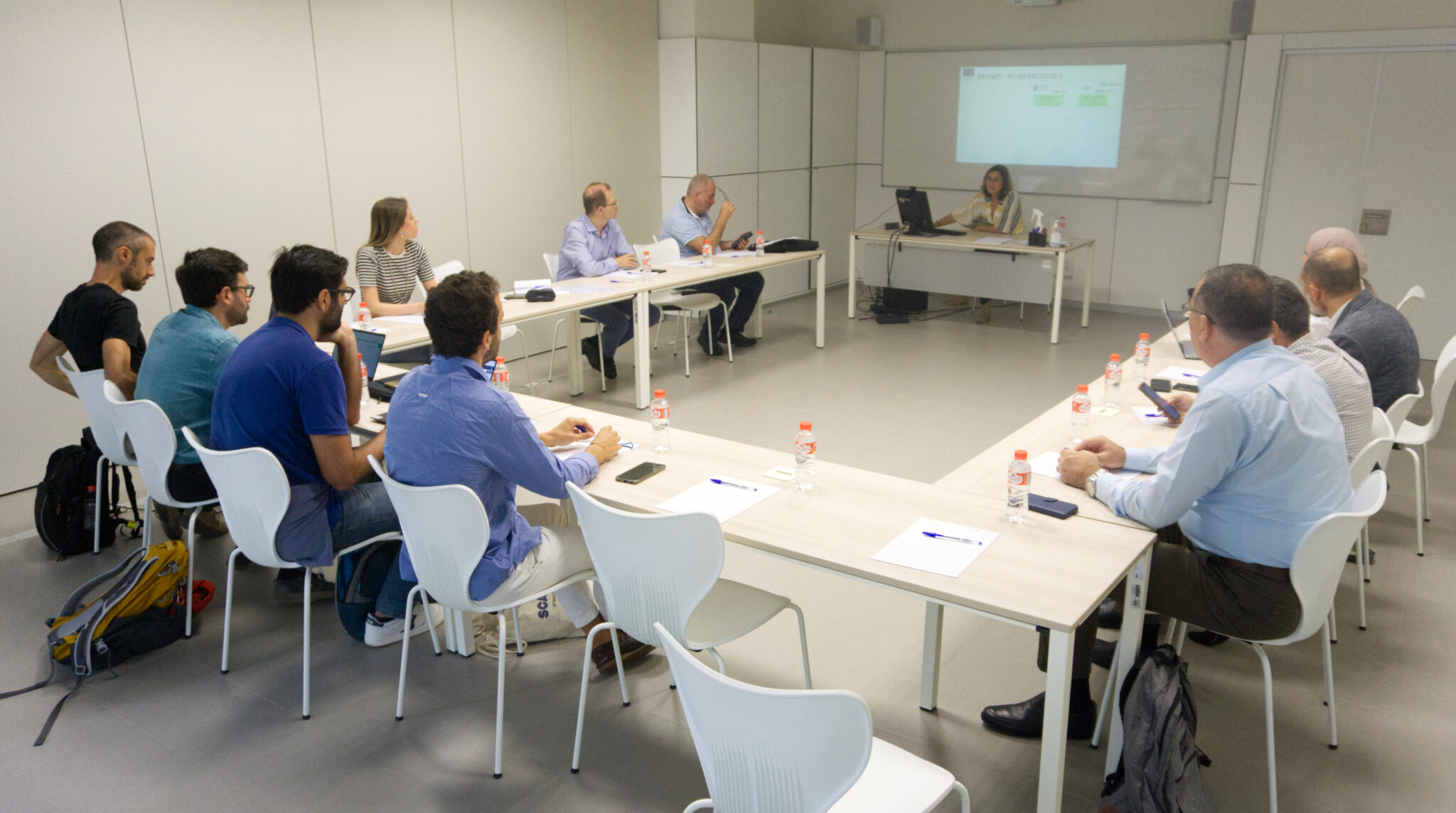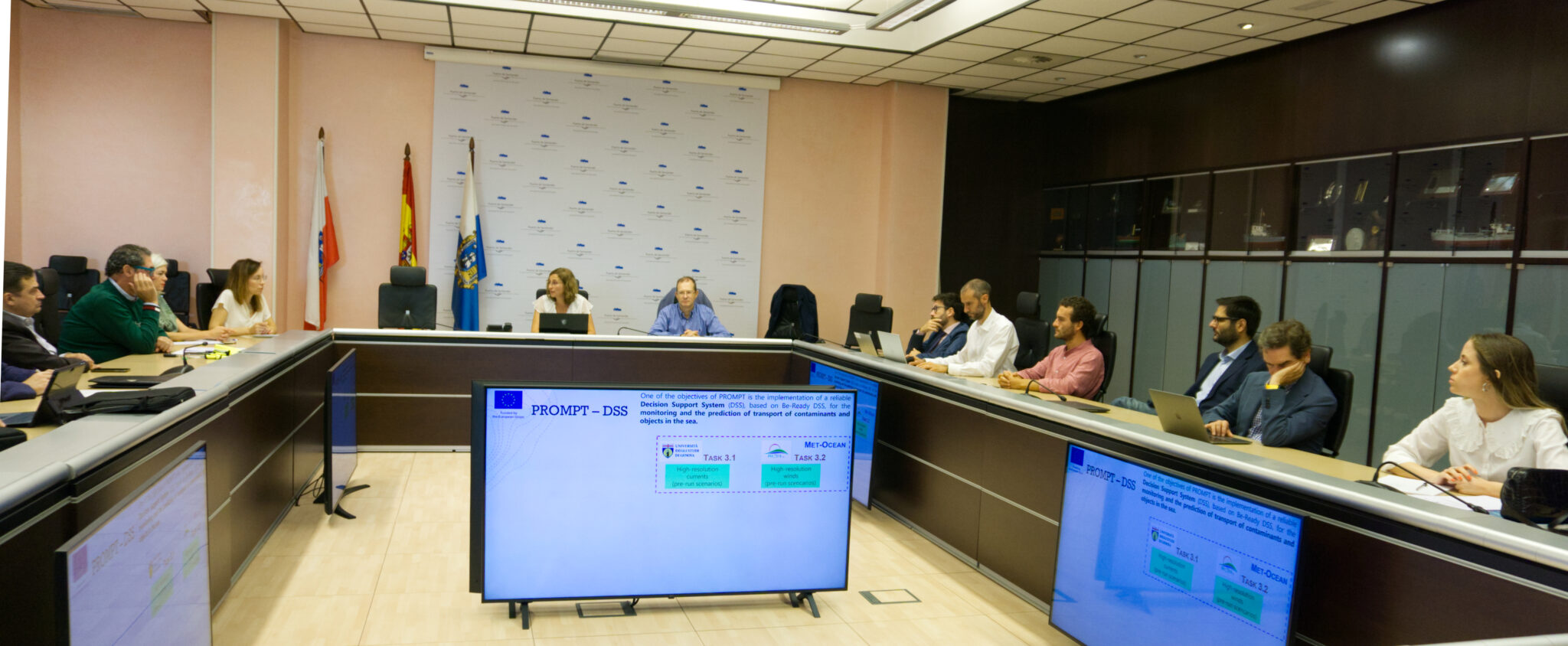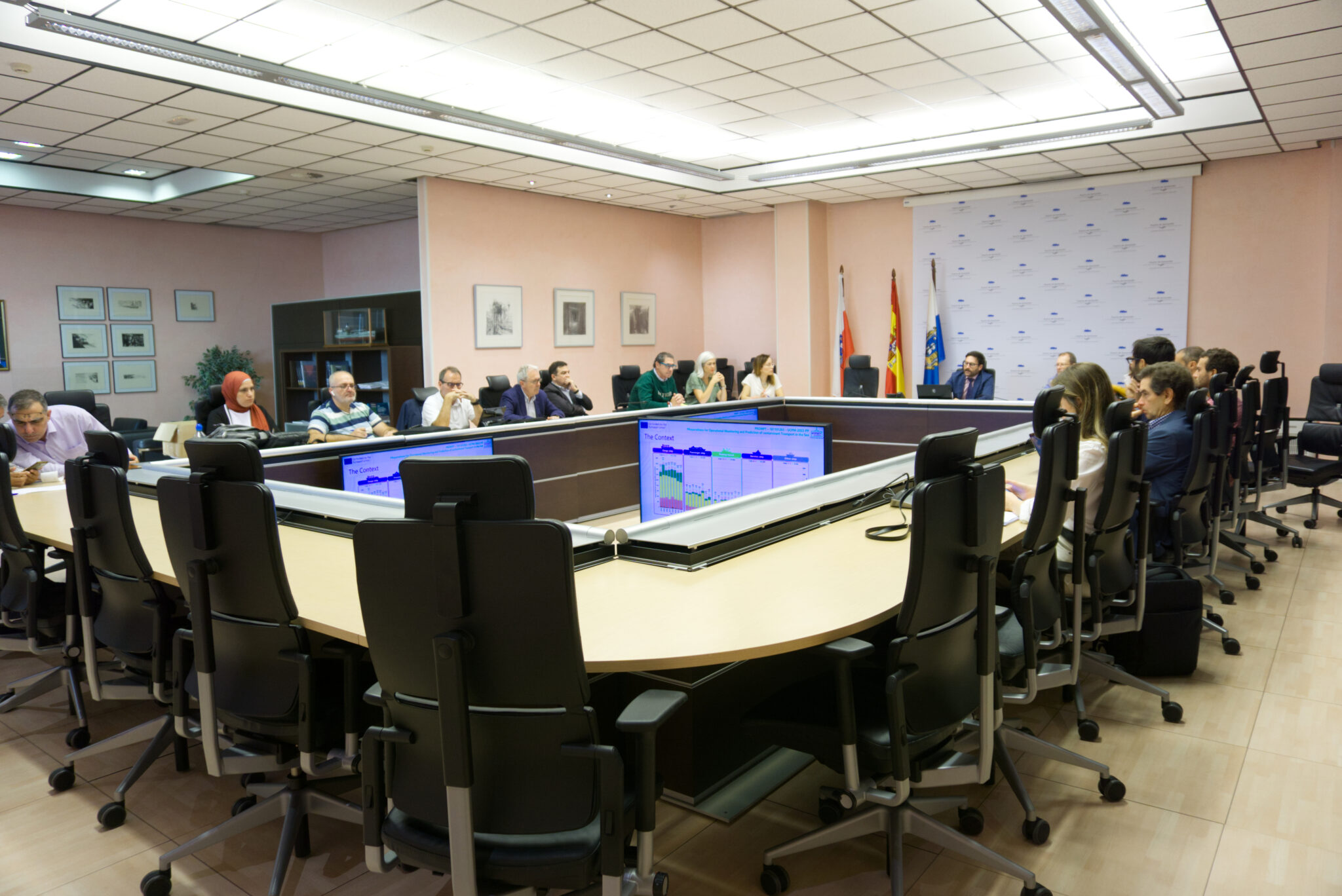IHCantabria gathers in Santander members of a European project that provides preparation for operational monitoring and prediction of pollutant transport at sea

From left to right: Francesco de Leo (University of Genoa), Giovanni Besio (University of Genoa), Mattia Scovenna (University of Genoa), Ana Julia Abascal (IHCantabria), Riyad Manasrah (University of Jordan), Abdelrahman Hajar (Port of Tripoli), Mohammad Rasheed (University of Jordan), Amina Al Kazaz (Port of Tripoli), Cristiano Nattero (WASDI), Andres Garcia (IHCantabria) and Omar Al Hauz (Port of Tripoli).
The technical meeting brought together at IHCantabria representatives of the seven entities involved in the implementation of the PROMPT project, representing Spain, Italy, Luxembourg, Lebanon and Jordan.
On September 18th, the Environmental Hydraulics Institute of the University of Cantabria (IHCantabria, by its acronym in Spanish) gathered at its facilities representatives of the seven partners of the European project entitled “Preparedness for Operational Monitoring and Prediction of Pollution Transport at Sea” (PROMPT), in order to analyze its progress and its international projection.
This project is led by the University of Genoa (Italy), which is part of a consortium with the following entities: IHCantabria (Spain), PM_Ten S.R.L. (Italy), WASDI (Luxembourg), Office d’Exploitation du Port de Tripoli (Lebanon), European Research Institute (Italy) and the University of Jordan (Jordan).
Members of these seven entities that make up the PROMPT project consortium held another technical meeting in the Port of Santander, on September 19th, with representatives of the Santander Rescue Coordination Center, the Civil Protection and Emergency Service, the Maritime Captaincy and the Port Authority of Santander.
Representatives of IHCantabria participated in these technical meetings, under the coordination of Ana Julia Abascal Santillana, who is the principal investigator of the PROMPT project and member of the Oceanography, Estuaries and Water Quality Research Group of this institute. These meetings have led to agreements for new collaborations.
The marine environment is continually threatened by pollution from maritime accidents that can lead to spills of hazardous substances. To combat this problem, the European Union (EU) allocates resources to provide EU Member States with common protocols, action plans and operational tools in relation to spills of oil or hazardous and potentially dangerous substances (HPDS).
The PROMPT project is funded by the EU through the Union Civil Protection Mechanism (UCPM), which supports projects focused on disaster prevention and preparedness, as well as the sharing of knowledge, experiences, best practices, and networking.
The goal of PROMPT is to expand the capabilities of the ICT tool developed under the European BE-READY project (which also receives UCPM funding) to address the dispersion of the volatile part of oil and HPDS spills, as well as satellite tracking of oil spills and floating containers at sea.
The Decision Support System, already in use in the ports of La Spezia, Tripoli (Libya) and Aqaba (Jordan), will be extended with the new features described above and extended to the port of Genoa, specifically for the part related to the dispersion of pollutants in port and coastal waters. Training and knowledge transfer dedicated to port operators and partners in neighboring countries will complete the project activities.
More information about the PROMPT project:
https://civil-protection-knowledge-network.europa.eu/projects/prompt


Moments of the technical meeting held on September 18th, at IHCantabria, and on September 19th, at the Port of Santander, with the PROMPT project consortium and representatives of the Port Authority of Santander, Capitanía Marítima, Salvamento Marítimo and Civil Protection.





